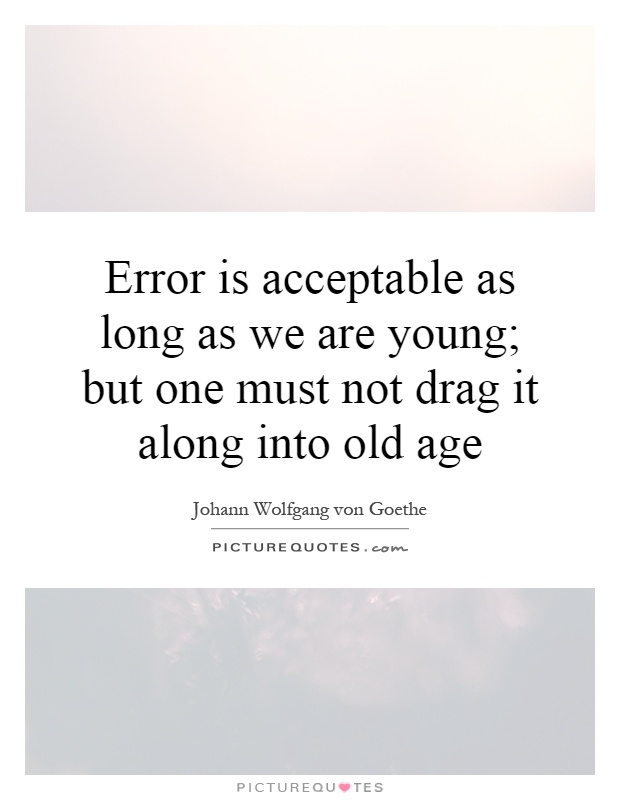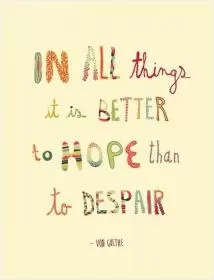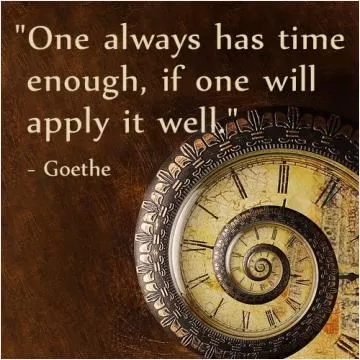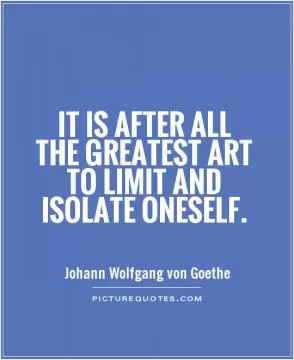Error is acceptable as long as we are young; but one must not drag it along into old age

Error is acceptable as long as we are young; but one must not drag it along into old age
Johann Wolfgang von Goethe, the renowned German writer, poet, and philosopher, is often quoted for his profound insights on life, love, and human nature. One of his famous quotes that resonates with many is, "Error is acceptable as long as we are young; but one must not drag it along into old age." This statement encapsulates the idea that making mistakes and learning from them is a natural part of youth, but it is crucial to grow and evolve from those errors as we age.In his own life, Goethe experienced his fair share of errors and missteps. He was known for his passionate and sometimes reckless behavior in his youth, which often led to mistakes and failures. However, Goethe was able to channel these experiences into his writing and art, using them as inspiration for his works. He understood that errors were a necessary part of the learning process and that they could ultimately lead to growth and self-improvement.
As Goethe grew older, he became more introspective and reflective, recognizing the importance of not repeating past mistakes. He believed that carrying the burden of past errors into old age could hinder personal growth and prevent one from reaching their full potential. Instead, Goethe advocated for embracing new experiences, learning from past mistakes, and continually striving for self-improvement.












 Friendship Quotes
Friendship Quotes Love Quotes
Love Quotes Life Quotes
Life Quotes Funny Quotes
Funny Quotes Motivational Quotes
Motivational Quotes Inspirational Quotes
Inspirational Quotes